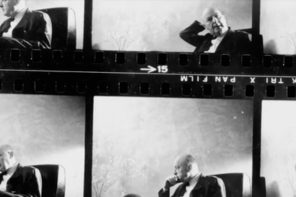David Carr didn’t want you to trust him.
It’s a funny thing about journalists and trust. Skepticism is a point of professional pride. “If your mother says she loves you,” the j-school saying goes, “check it out.”
At the same time, journalists want to be trusted. They need sources to trust them, first of all, and then readers and viewers. To be a good journalist, you need people to trust you even as you don’t trust anyone. That’s credibility. The word has even become a kind of lifetime achievement award. There’s no higher honor in the business than to be named, like Walter Cronkite, the most trusted. In the world of daily news, trust is a measure of fame and fame a measure of trust, and that’s the thing journalists want. The journalist tells the truth, but comes out looking pretty good in the process.
This can be a trap, wanting to be trusted. You can see it with Brian Williams, who got caught recently telling a war story that was more self-aggrandizing than factual. As Carr wrote in a recent column, “Mr. Williams possesses a rare combination of fame and trust, with each feeding off the other. But fame is slippery.”
And so is the truth. Which is why you have to be skeptical.
Carr died last week at 58. A working journalist at the New York Times, he has been widely honored by the profession he practiced. He was genuinely liked by his colleagues but, more than that, seemed to serve as a walking, working example of what can be great about journalism. Part of that was his commitment to the trade craft of distrust.
One thing that set Carr apart was his professional skepticism, which was, primarily, directed at himself.
Carr was a recovering addict. He wrote a memoir of his recovery, called The Night of the Gun. The story is basically what one expects from the genre—a colorful fall from grace, “bottom,” then redemption. What set it apart was that Carr didn’t want you to trust him. The Night of the Gun was re-reported, not just remembered. Carr dug up documents and did interviews and approached the story as a journalist. When he said he loved his children, he went and checked it out.
Really, the memoir started from the premise that memories are suspect.
“Even if I had amazing recall, and I don’t, recollection is often just self-fashioning,” he wrote early in the book. And then later: “When memory is called to answer, it often answers back with deception. How is it that almost every warm bar stool contains a hero, a star of his own epic, who is the sum of his amazing stories?”
It is a dogma of public confession that you can tell the truth and it will set you free. Carr insisted, however, that baked into that (as he would say) was the tendency to not tell the truth.
“If I said I was a fat thug who beat up women and sold bad coke, would you like my story?” he wrote. “As a member of a self-interpreting species, one that fights to keep disharmony at a remove, I’m inclined to mention my tenderhearted attentions as a single parent before I get around to the fact that I hit their mother when we were together.”
This reflects a commitment to journalism. It also reflects a belief in sin.
It’s a funny thing about sin. People you’d expect to talk a lot about it generally don’t. Baptist pastors who take as a basic fact of the universe that “all have fallen short of the glory of God” have gotten good at reframing that, and talking about how to find your life purpose.
Even Calvinism, with its doctrine to total depravity, gets rebranded sometimes as the pursuit of eternal pleasure. Call it “Christian hedonism.”
Other times, people talk about sin, but it’s other people’s sins. It’s gays and secular humanists, feminists and people who watch 50 Shades of Gray. Essential to the idea of sin, however, is that it’s a universal condition. Everybody has it. Everybody does it. But the public rhetoric of sin is mostly not self-critical, self-reflexive.
It was for Carr, though.
He didn’t use the word “sin” specifically, but this was part of his idea of God and essential to how he talked about honesty. As he told Terry Gross in 2011, this was part of his recovery. Knowing his own weakness made it possible for Carr to trust a higher power, to accept help, and hope for something better than what he deserved.
“I’m kind of a thug, kind of a pirate,” he said. “I’ve done terrible things, and yet I’m for the most part able to be a decent person …. I think something else is working on me.”
As someone in recovery, Carr no doubt knew the work of theologian Reinhold Niebuhr, as least the serenity prayer. Whether he knew it or not, Carr also embodied Niebuhr’s work in his life. Niebuhr taught that people needed to learn to be suspicious. But most of all and first of all, suspicious of themselves. This was the doctrine of “Christian Realism.”
“It must be understood,” Niebuhr wrote, “that the children of light are foolish not merely because they underestimate the power of self-interest among the children of darkness. They underestimate it among themselves.”
Carr lived and died in world where being a truth-teller is a point of honor. He became, as his obit says, a media brand name, in part through his work in a confessional genre of “warts and all.” He was blunt. And irreverent. And called bullshit. But maybe most importantly he modeled the idea of moral inventory and a kind of honesty that starts from an awareness of one’s own sin.


